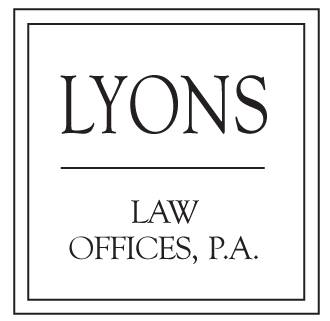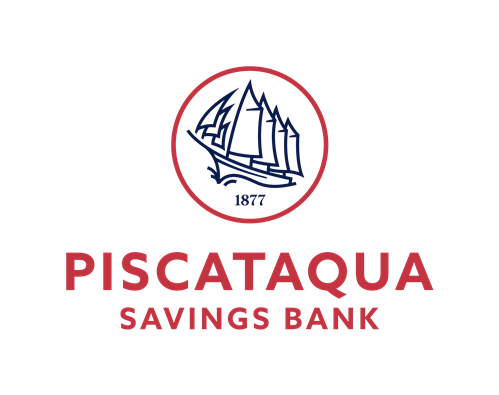It’s opening day for Rotary at the Portsmouth Country Club. We’re back! And better than ever! It is also Chess Day.
Re-enjoy our May 4 meeting with this photo gallery:
But first our beginning. President Joannie presiding. The Pledge, the Four-Way Test, the invocation—Rice, the song—Our Country ‘Tis of Thee—Lantinen and, the food with a little bit of fellowship thrown in. A special note regarding the Pledge. Our flag was missing. So today, we pledged allegiance to the Flagg. It was his finest moment. You would have thought Churchill was being sworn in as Prime Minister for the first time. Alas, fame and fortune are fleeting, even for a Flagg.
Guests and visiting Rotarians were announced including our special guest group, the Saint Patrick fourth grade chess masters. More on that in a minute. If you need the names of the guests and visiting Rotarians, ask Joannie, she’s got the list.
Up next, happy dollars. Nancy Notis ponied up $20 in recognition of our 100th club anniversary held at the Library Restaurant where it all began for our club. Andrew Jarvis, one of the founders of our club, got it started at the Library. His daughter, Dorothy, celebrated her 97th birthday after the 100th celebration. Her family informed us how much they appreciated that Andrew is remembered by the club annually. Yes, we do.
Mark Perkins gave $10 for landing a new job with Devine Millimet. Congratulations Mark!
Yvonne gave due to the fact that the Portsmouth Chief of Police was sitting at her table and she just got a parking ticket.
James Petersen was happy for some reason. Probably because his shirt fit this time.
Cathy Nickerson gave $2 because we are back at the country club.
John Lyons gave because he and his parents are Saint Patrick’s graduates.
Russ Grazier gave $10 because they are going to be grandparents and because his students will be performing at the Music Hall May 12th as the first performance since Covid to be held in the hall.
Eric gave happy dollars because he bumped into our old friend, Walter Liff in New Castle.
Up next, Joannie thanks Basil Richardson for his soda can “tops.” She explained to the students that we collect the tops to get money to give to veterans’ causes.
She next thanked Yvonne for brokering our new “no lunch” option.
Today, we welcomed two new members to our club. Karen Conard introduced Chief of Police Mark. He has served 28 years with the Portsmouth Police force starting in 1993 as an intern. It’s a long way to the top but he did it. Congratulations to Chief Mark and welcome!
Dan Hoeffle introduced our next new member, Matt Billings. Matt is a vice president of a real estate construction management company and an expert skier. Welcome Matt!
Mort Schmidt next took the podium to regale us with more of our club’s history. Our club moved from the Library Restaurant to Yoken’s in 1971. Mort joined in ’78. He informed us about the old policy of fining anyone who did not wear their Rotary pin. He then told us a story about Andrew Jarvis who always said to wear your pin so people know you are a Rotarian.
Andrew apparently was in Greece working on a school for the blind. During a boat trip, his wallet was either lost or stolen. He did not know what to do. Someone else on the boat came up to him and said, “hey, you are a Rotarian.” “How’d you know?” “Your lapel pin.” The man was a fellow Rotarian. Andrew got his money back and was able to complete his mission. So, the moral of the story—wear your pin, you never know.
Mort then started telling us about our next Paul Harris Fellow. He is someone that grew up on the seacoast. Was born in Frisbee Memorial Hospital. Has worked many hours with the soup kitchen and was inducted into Rotary on Halloween. He has become our group photographer. Yes, you guessed it, Don Chick. Congratulations, Don! Well deserved.
Joannie thanked those who paid their dues today and informed us invoices will be going out next week, which is this week.
After Ted answered a call from his first mate, Joannie took the microphone and quizzed the students about the pieces on a chess board. They scored a 100%. Way to go!
Ted followed up the quiz by giving us a brief history of the chess program. The first thought was to give chess sets and teach chess to kids at risk. A wise person told Ted that all kids are at risk.
So, after some brainstorming, they brought an idea to then School Superintendent Bob Lister. How about giving chess sets and teach the fundamentals of chess to students? Lister loved it. After consultations with teachers, it was decided that the best age to introduce chess was 4th grate. And thus, the 4th grade chess program was born.
As Ted explained, chess is about making choices and understanding the consequences of those choices. The lesson is broad and can apply to all sorts of situations in life. That is the ultimate lesson being taught.
To date, over 4000 chess sets have been given out to 4th graders at Little Harbor (the first school), New Franklin, Dondero, Newcastle and Saint Patrick’s.
Ted told us about how some of these students, now grown, fondly remember receiving their chess set and how, in some cases, it really changed their lives.
Flagg had a similar experience to share. While in line at BJs, a cash register clerk asked him if he was a Rotarian. Jon, the astute litigator that he is, asked what made him ask that question as Jon was truly baffled. The response— “your hat.” Deductive reasoning at its best. The young man went on to tell Jon how he received a chess set and how that chess set changed his life. He was particularly close to his father. But on a trip to Florida via car, he played chess with his father the whole way. Their relationship improved ever since. Another fine example of the power of Rotary. You just never know.
Up next, Danielle took the podium to tell us about the chess program at Saint Pats. Danielle has been a teacher there for 23 years. The chess program has opening up another avenue to talk to children about choices. She informed us how they talk about Jeremy and how some of his choices had negative effects on his life. Things like drug and alcohol abuse can lead to very dark places. And choices can be made that do not lead down these dark paths. She interweaves her Catholic faith in these discussions to further bolster the notion of free will and making good choices.
Other benefits of the program include face-to-face interactions among students. In our computer and social-media-oriented world, playing chess gives the children an opportunity to interact face-to-face and not through some screen. Playing chess requires the students to discuss the rules and to strategize together when two-person teams are assembled.
Parents get involved too. Chess gives parents another avenue to communicate with their children. Children can even learn to wager. “I’ll wager two cookies to your one.” Winner takes all. Although in practice, the children, more often than note, share the cookies with everyone.
They try to keep the sets in class to keep the children engaged but many of them want to take the chess boards home to play.
We were then shown a short video made at Little Harbor by the chess program administrators. In it, they interviewed students while they played. They gave all sorts of positive statements about the benefits of playing chess. You can imagine what was said. In short, everyone benefits from the program and everyone ultimately wins.
We then engaged with the students in several chess matches. Who won? Who knows? They all won.
As our last order of business, Al Lantinen won the $49 50/50 raffle. There was no match. Al graciously donated his winning to the Jeremy Alex Fund. Many thanks Al.
And with that, our meeting was adjourned.
Until next time . . ..













